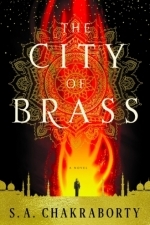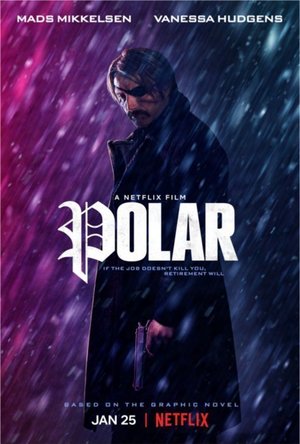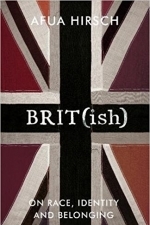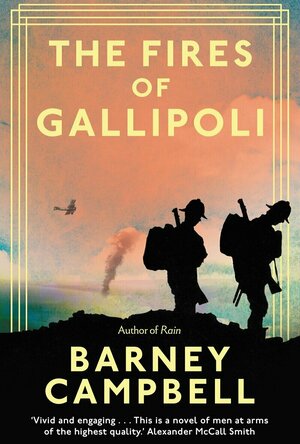
The Fires of Gallipoli
Book
Edward Salter is a shy, reserved lawyer whose life is transformed by the outbreak of war in 1914. On...
Historical Fiction WWI
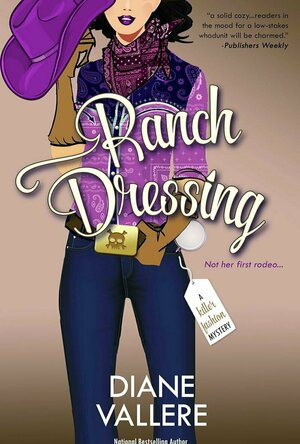
Ranch Dressing
Book
Get ready for a laugh-out-loud adventure with Samantha Kidd, the most stylish sleuth in Ribbon,...
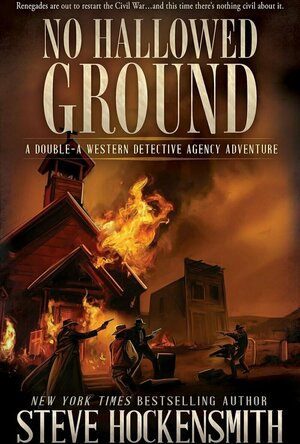
No Hallowed Ground
Book
In a relentless chase across Missouri, four brave souls confront a hidden cabal of Confederate...
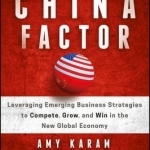
The China Factor: Leveraging Emerging Business Strategies to Compete, Grow, and Win in the New Global Economy
Wiley, Amy Karam and Ken Wilcox
Book
The Innovation of Globalization proven strategies to succeed and out-compete emerging competition...
Goddess in the Stacks (553 KP) rated The City of Brass: Daevabad Trilogy in Books
Mar 25, 2018
So the book has been touted as an "own voices" novel, seemingly much to the author's chagrin. She is Muslim, but she's a white convert (Chakraborty is her married name). She has striven to correct the misconception about her ethnicity when she finds it, tweeting about it and talking about it in interviews. (This interview is a good example.) Because the book is pure fantasy, in a fantasy realm after the first few chapters, I'm not too worried about it not actually being written by a middle-eastern author. She does note in the interview I linked that she's not qualified to write some stories because of her ethnicity, and I appreciate that recognition of privilege. As far as I can tell, (as a white person myself) she did justice to the bits of mythology that she included. (Given the reception by people who were so excited about it being an Own Voices book, I think I'm probably right.) Her twitter (@SChakrabs) is FULL of links to minority authors and retweets about their books. I am very impressed by the level of her advocacy for minority authors.
So that aside, I LOVED THIS BOOK. I almost always enjoy fantasy inspired by non-western mythology: Children of Blood and Bone was fantastic, and though Forest of a Thousand Lanterns had a western fairytale at its heart, being reimagined through an Asian lense was really neat to read. The Bear and The Nightingale and The Girl in the Tower were Russian inspired, as were The Crown's Game/The Crown's Fate. I really do try to pick up non-western inspired fantasy when I can. City of Brass scratched that itch perfectly.
City of Brass opens in Cairo, where our heroine, Nahri, is a con-woman with small healing magics. When a ritual goes awry, she's thrust into the world of the djinn. It's when Nahri and her accidental bodyguard, Dara, arrive at the Djinns' city of Daevabad that the story really gets started.
I'm still a little confused about the difference between djinn and Daeva; Daeva seem to be one of the tribes but also the name for the entire race, and some of them get offended at being called djinn but some of them don't? I'm not really sure about that distinction. There is a clear line between djinn and Ifrit, though - Ifrit are immensely powerful, immortal beings who refused to subject themselves to punishment many centuries ago. I'm not sure I actually see a downside to being Ifrit, other than the djinn all think they're evil. The Ifrit, however, are out to get Nahri, and Dara's not having any of THAT.
I love Dara - he's a fascinating character, with a violent, mysterious backstory. I'm very eager to read more about him and figure out exactly what's up with his background. Nahri is also awesome - a little arrogant, but by the end of the book she's starting to learn she might need help from those around her. Unfortunately, also by the end of the book she doesn't know who to trust. The naive djinn prince, Ali, is the third main character of the book, and while I can see him having an interesting story, his personality is still a little flat. Hopefully the second book will see advancement in all three of these characters' personalities.
And I can't WAIT for the second book! City of Brass didn't exactly end on a cliffhanger, but it did leave many questions unanswered and our main characters' fates uncertain. Unfortunately, I can't find any information on the sequel, just that it's being edited. No release date or title yet.
Read this book. It's fantastic.
You can find all my reviews at http://goddessinthestacks.wordpress.com
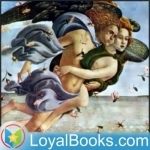
Myths and Legends of Ancient Greece and Rome by E.M. Berens
Podcast
Silver footed, fair haired Thetis, Ares the God of War, Nike the Goddess of Victory, The Furies and...
Charlie Cobra Reviews (1840 KP) rated Polar (2019) in Movies
Jul 5, 2020
Duncan Vizla, a.k.a. "the Black Kaiser" (Mads Mikkelsen), is an assassin for the Damocles corporation. It is company policy that all assassins retire at age 50. He checks with a doctor about his health which is good and his accountant about his wealth; which having made the maximum pension fund contributions as possible, has him set for life. In 14 days, on his 50th birthday, he'll be entitled to a payout of $8 million dollars. Mr. Blut (Matt Lucas), has Vivian (Katheryn Winnick), Duncan's handler, contact him for one last mission. Unbeknownst to Duncan this is a plan to have him killed to avoid paying out his pension.
This me was awesome despite what critics say. I read a lot of bad comments talking about it being abhorrent and vulgar. It is rated TV-MA and not for kids and it is very adult. Plus it is a movie about assassins, people who kill for money, so what do you expect. I was surprised how much I liked the Black Kaiser character, since he didn't speak much during the film. Almost felt like a spaghetti-western in some ways, with the silent gunslinger aspect to it. I thought the film was very well done when it came to the acting, the action, and the plot. I'm sure that there are points to what the critics have said but the movie was too awesome for me to care. One thing, the main bad guy i didn't much care for. He did get me to not like him and with acting that's harder than getting people to like you. Also I enjoyed the group of assassins who are employed with the Damocles corporation, for the most part they were pretty interesting and diverse and added something extra to the film. And I was not prepared for Vanessa Hudgen's character but she had a surprising role and did very well too. I give this movie a 8/10.
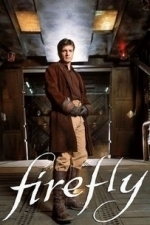
Firefly - Season 1
TV Season
Firefly is an American space western drama television series created by writer and director Joss...
Firefly Serenity Joss Whedon Browncoats TV Series Fox
As to the writing, at times it was overly complicated and I had to reread to make sure I got it, especially when it had to do with finding my hourly and monthly animals, luckily the chart is easy to understand. The descriptions of the animals aren't very in depth and they're repetitive, so it's not very illuminating and I've read more about them in other books. However, I do like that there are meditations that include a picture to show how it should be properly done and I probably will try it out.
It's a nice book and does help you find out more than your yearly animal, so it's a good starting place for those who are unfamiliar with Chinese astrology, but that's about it.
Suswatibasu (1703 KP) rated Brit(ish): On Race, Identity and Belonging in Books
Mar 11, 2018
What hinders this process is the apparent racism that plagues British society, from being 'colour-blind' and thus ignoring the issue, to the awkward and troubled relationship with Britain's history and its origins. The author, Afua Hirsch, also discovers her own Ghanaian roots throughout her journey of self-awareness, making this book both a memoir and social commentary. Hirsch checks her privilege immediately, which makes a refreshing change.
While I can completely relate to her opinions on the racist structures in place and the microagressions that have become normalised, the historical and anthropological elements were the most fascinating parts for me. Learning about the racist views upheld by leading western thinkers such as Immanuel Kant and David Huhne, as well as how the 1919 race riots ensued over the perception of 'white cleansing' was deeply concerning.
Hirsch's call for change on Britain's selective amnesia is not new but it has a contemporary angle following the country's move to leave the EU. Incredibly engaging.
